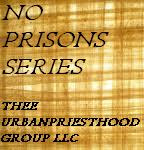
"Prisoner of conscience (POC) is a term coined by the human rights group Amnesty International in the early 1960s. It can refer to anyone imprisoned because of their race, religion, color...so long as they have not used or advocated violence.
It also refers to those who have been imprisoned and/or persecuted for the non-violent expression of their conscientiously-held beliefs."
American inner city Crime, politics and the prison industrial complex. This term “Prisoner of conscience” although coined under specific definition, I believe is relative to all in many ways. This term initially applies to many human rights collectives. One example is the plight and movement of pan-african socialists;(ie:artists Dead Prez, Black Panthers, people’s army) and black nationalist groups. The illustration of the political prisoner: M.L.K Jr, Huey Newton, Leonard Peltzer, those who demonstrated violent or non-violent resistance for social change. These examples and figures are known on a grand scale; but this term holds relation to all, especially in American inner cities.

In the inner city the criminal justice system deals with repeat felons to convicts; many times due to social conditioning, of class and race. From a bird’s eye view theory where you have a region that suffers poverty, it also suffers from under development, and is condusive to an environment of crime, an influx of narcotics and social unrest, and this becomes the culture of the community, generationally. Where the babies of yester-year easily replace those who ran the list of criminal function before. The prisoner of conscience is not only the socially conscious activist; he/she is the racially profiled individual arrested and charged with resisting arrest. He/she is the individual fighting a pending case of homicide in the event of self-defense. He/she is the individual charged with a crime they didn’t commit. All relative to conscientious decision. This essay is written in light that the prison industrial complex as stated, is not only an institution for offenders and potentially dangerous to society, but an industry..with people as the product and commodity; the prison industrial complex, is a business. An undertone of human capitalism. This fact is something to be conscious of in this modern day..of all nationalties in the urban plight, more exeptionally people of color, because systematic racism still exists. Even more with the exploitation of pop-culture; from remnants of the the upper middle class, middle to the lower. Prisoners of conscience is not a conspiracy theory, it is a reality in urban america and abroad. Peace.
Consciously yours,
Z.A











